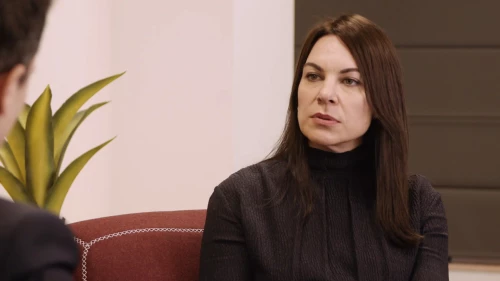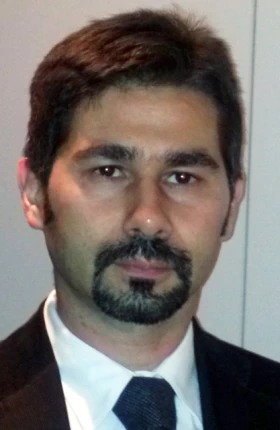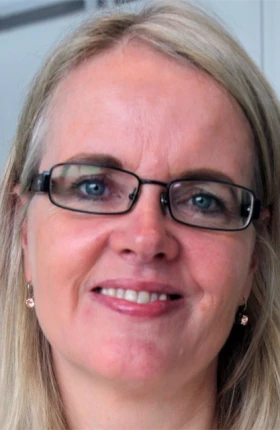Agile is not a new concept, but recently organizations have begun to see the impact of scaling agile mindsets and practices outside of the IT division and across the entire organization. After the technology sector, banks were among the first to adopt to this new way of working, and now telcos are embracing it. Telstra, a leading telecommunications company in Australia, is at the forefront of these changes globally.
A new way of working went live across a large part of Telstra in July 2019, and Natalie Peters, Telstra’s Executive, Ways of Working, has been leading and driving this change.
Nat spoke with Chris Mattey, a managing director and partner in BCG’s Sydney office, about the change, its challenges, and its impact, and shared advice for other telcos that are thinking about adopting Agile@Scale . The following is an edited version of their conversation.
What drove the need for such a major transformation at Telstra?
Telstra is a very large, incumbent telecommunications organization in Australia. It is a fantastic brand, but the company is also facing significant challenges. That prompted us as an organization to look at our entire company and how we needed to transform.
What have you done so far?
We’ve got four pillars as part of our strategy, which is all underpinned by digitizing our customer and employee experiences. So far, we’ve placed about 4,000 people across our organization in all parts of the company into a scaled agile team construct.
What was surprising about implementing an agile way of working?
That question is funny, because I found everything surprising. It’s not your traditional transformation in any way. So, you will get surprised every single day in a job like this when you try to transform a big, complex legacy organization.
The other surprising thing is the people that you least expect are the ones who grab onto it and just run with it. Once you’ve got that momentum, it is incredible what happens in the organization.
Was there anything different about implementing agile in a telco, specifically, versus a bank?
I think what’s different in a telco is the complexity, because we’re not just building products, managing particular segments of customers, and providing those through stores, call centers, and digital experiences. We’re actually running a big network infrastructure and big assets. It’s complex as an organization to straddle and manage all of those elements.
Do you feel like this change is going to be worth it?
There were times you could have asked me this and I would have said that I don’t know if it’s worth it. But now that we’re through this tipping point, it is absolutely worth it for our organization. We have people in our company who now believe that we’re committed to changing how Telstra works.
So, what are some of your people actually saying? What are some of the quotes you are hearing from the teams?
They’re saying, “We should have done this 10 years ago.”
“It used to take us four weeks to get approvals, where we wanted to change an offer or some sort of feature—and now we can do it. It takes two minutes.”
The other day I stood at the exit of the Telstra building, and I had this wonderful influx of feedback come to me about what is different. One employee, who has been here for about 20 years, said it’s the most profound change he has ever seen us make as a company. He said, “What I can see is we’re faster. There’s a different energy, and we’re moving. We’re not just waiting. We’re actually moving forward.”
One of the things that we hear a lot about in these transformations is the need for real cultural change. But we all know cultural change is very, very hard. So, can you talk a bit about what Telstra has done to shift your culture?
Culture takes decades to change. So, what you’re doing is you’re moving by increments to get you to the end-state of where you want the culture to be.
So, what we did to move the culture, and I think what helped make this transition so successful , was we put people in the method as quickly as possible and then we supported the mindset change.
How has it been working with the leadership? Are you really seeing leaders behave differently, or is it hard to make that change?
I think there are some leaders that are behaving differently and some that are still adjusting because it’s not an easy transition for everybody. I would say that our traditional mindset has been about getting things right through deep analysis of data. We’ve had to flip that on its head and say, “We’re a learning organization, so we’re going to do this thing and learn as we go.” It has been amazing that everyone, from our CEO to our senior leadership team, has taken a stand and has said, ‘I’m learning this. So, I’m learning as I go, I’m going with it, and we’re going to be bold.”
How important are coaching and agile coaches to really uplifting the capability of leaders in the organization?
I think when you’re trying to get people to learn a new skill or a new way of working, you have to provide support and that support has to be tactile and at the team level every single day. That is absolutely fundamental. There’s no way that you would pull a football team together and say, “Right, get on the field and have a crack and we’ll just wave from the sidelines and hope you do well.” That would never happen.
I believe that long after I leave this role, the coaches are actually the people who are going to bring this to life. Teams and leaders really need support on the ground every day to use the tools, have the practices, and make sure they’re adjusting all of the elements of the ways of working to make this live and breathe.
What has been your biggest takeaway from going agile at Telstra?
I think what I’ve learned is that your own personal resilience, your own belief in yourself and what you can do in an organization, will really be tested. It will test you on every possible dimension. It was a lonelier job than I was expecting it to be. But I think if you can see the vision and you can have that bold ambition, it’s incredible what it can do for the organization.
What are you doing differently now on a day-to-day basis?
The way I work is completely different. Basically, my team tells me what I need to do. They tell me where I need to be, what they need clarity on, and if I need to remove any impediments for them. That’s basically my job, and it is really, really different.
Knowing what you know now, what is one piece of advice you would give your former self?
“Spend more time doing yoga.” I spent less time on the yoga mat than I should have, and I think that would have helped. “Don’t feel like you always have to have the perfect answer” would be the other thing. You have to embrace the mindset that you’re trying to encourage the organization to have.
What is one piece of advice you would give to an organization that is looking to embark on this sort of Agile@Scale change?
I would say get yourself a really incredible, capable team of people from within the organization who can really champion it. Seek out passionate, motivated, and skilled people that will be able to do this for you, because you are sprinting a marathon every single day.
The other bit of advice would be to give that team a really good partner to work with. I think it’s really important that you have a strategic partner who you can spar with, who can give you the best-in-class learnings, and who can challenge your own thinking—because that is absolutely fundamental to help navigate you through.






